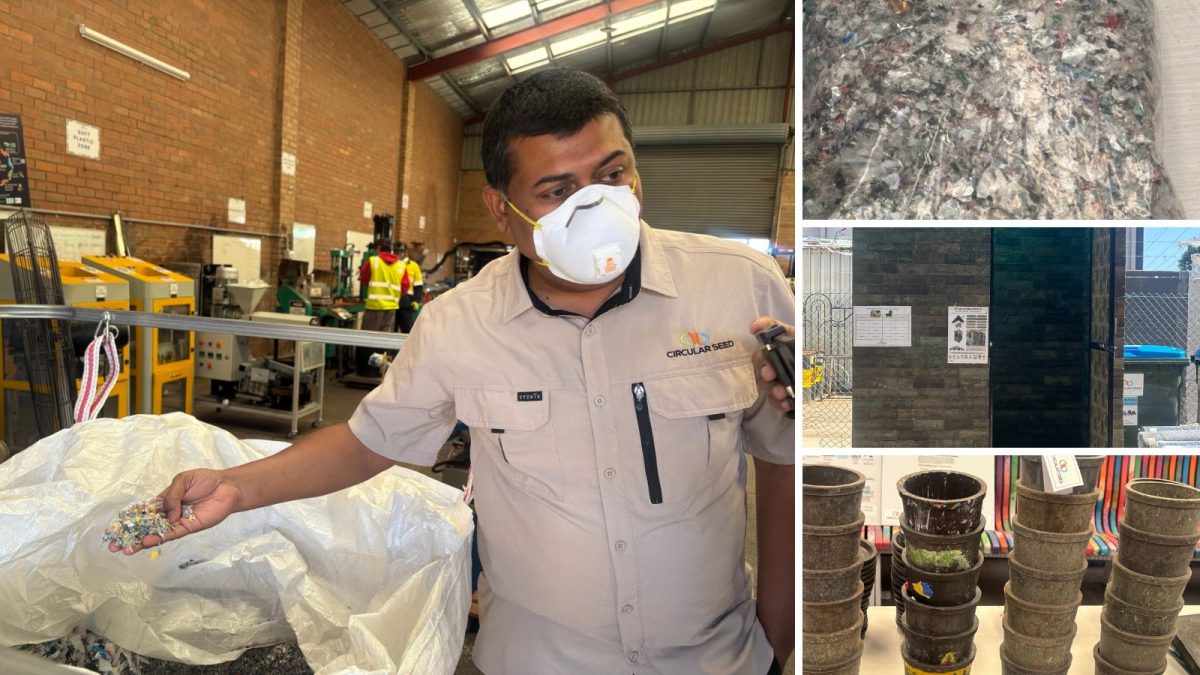Last Updated:
Narendran Subramaniam, a Chennai-born mechanical engineer now based in Australia, is exploring how waste can be transformed into valuable resources

Narendran Subramaniam,
India generates more than 9.3 million tonnes of plastic waste every year, according to data. A large part of this waste ends up in overflowing landfills, rivers, and oceans, creating an environmental crisis that has only worsened with urbanisation and population growth.
This innovator of Indian origin is looking for a practical way forward.
Recommended Stories
The innovator from Chennai
Narendran Subramaniam, a Chennai-born mechanical engineer now based in Australia, has been exploring how waste can be transformed into valuable resources. From his laboratory and workshop in Australia, he has developed a suite of technologies under his company, Circular Seed, that can convert low-value plastics into high-performance, reusable products.
“Waste is usually seen as a burden,” he told News18. “Our aim is to give waste its own value. If we can reimagine waste as a resource, we can tackle pollution while creating affordable solutions for communities.”
His work straddles both continents. While he continues to operate in Australia, Narendran is now bringing his technology to India, beginning with projects in Goa and Nagaland.
Plastic waste to useful products
Circular Seed focusses on thermo-catalytic decomposition process, which allows low-value plastic waste, often unrecyclable in conventional systems, to be upcycled into useful products.
These include:
Quick Build Rooms, such as forest ticket outposts, that can be constructed in as little as four hours.
Garden Plant Walls for urban spaces.
Durable Public Seating made from reprocessed plastics.
This technology is already being piloted across multiple projects in India through partnerships with SORR India, Bharat CSR Network, and government agencies.
Projects in India
Circular Seed’s entry into India has been marked by a series of ambitious initiatives, especially in Goa and Nagaland:
Coastal Communities Training Program: Providing Tier-1 oil spill response training using Gyroid Sponge Booms.
Waste-to-Worth Program in Shiroda Village (Goa): Deploying Circular Seed Machines to turn low-value plastics into durable, high-performance products.
Storm Waste Management in Panjim (Goa): Applying Gyroid Sponge Technology to help Smart City projects manage polluted stormwater.
Circular Economy Initiative (Goa): Establishing frameworks for recycling and raising material recovery rates in partnership with the Goa Waste Management Corporation.
UNDP Small Grants Collaboration: Tackling ghost nets and improving water treatment with Gyroid Sponge and Circular Seed technologies.
Nagaland Hill Station Waste Management: Introducing one Plastic Plus machine per district, enabling villages to deposit their plastic waste and convert it into building materials.
These initiatives are designed not just as environmental interventions but also as community-driven models. “The very communities most affected by waste and pollution must benefit directly from the solutions,” Narendran said.
Bridging Australia and India
Narendran’s venture showcases Australian technology adapted to Indian conditions, creating space for collaboration in environmental sustainability, trade, and innovation. The projects in Goa and Nagaland align closely with Australia’s strategic interests in India and the wider Indo-Pacific, particularly in areas of circular economy, pollution remediation, and sustainable development.
Quick build solutions: From landfill to livelihood
One of Narendran’s innovations is the Quick Build Room. Using reprocessed plastics, his team has created modular structures that can be erected in just four hours. In India, these are being tested as forest ticket outposts and could be adapted for disaster relief shelters, rural classrooms, or low-cost housing.
“These rooms show how waste can become something of value,” Narendran explained. “It’s not just about removing plastic from the environment—it’s about reusing it in ways that improve people’s lives.”
Why it matters
India’s plastic crisis is multidimensional. The country’s 9.3 million tonnes of annual plastic waste is often mismanaged, leading to river blockages, air pollution from burning, and threats to marine ecosystems. Traditional recycling handles only a fraction of this waste, leaving a gap that innovators like Circular Seed are trying to fill.
A vision for scale
Circular Seed’s model is designed for scalability across India. Machines can be deployed even in remote villages, where they convert local plastic waste into useful outputs.
“From landfills to ocean waste, we want to tackle it all,” he said. “This is about creating a sustainable loop where nothing is wasted, and everything has value.”
About the Author

Kamalika Sengupta is the Editor (East) at CNN-News18 / News18.com, focusing on politics, defence, and women’s issues. She is a seasoned multimedia journalist with over 20 years of experience reporting from East…Read More
Kamalika Sengupta is the Editor (East) at CNN-News18 / News18.com, focusing on politics, defence, and women’s issues. She is a seasoned multimedia journalist with over 20 years of experience reporting from East… Read More
Loading comments…
Read More




